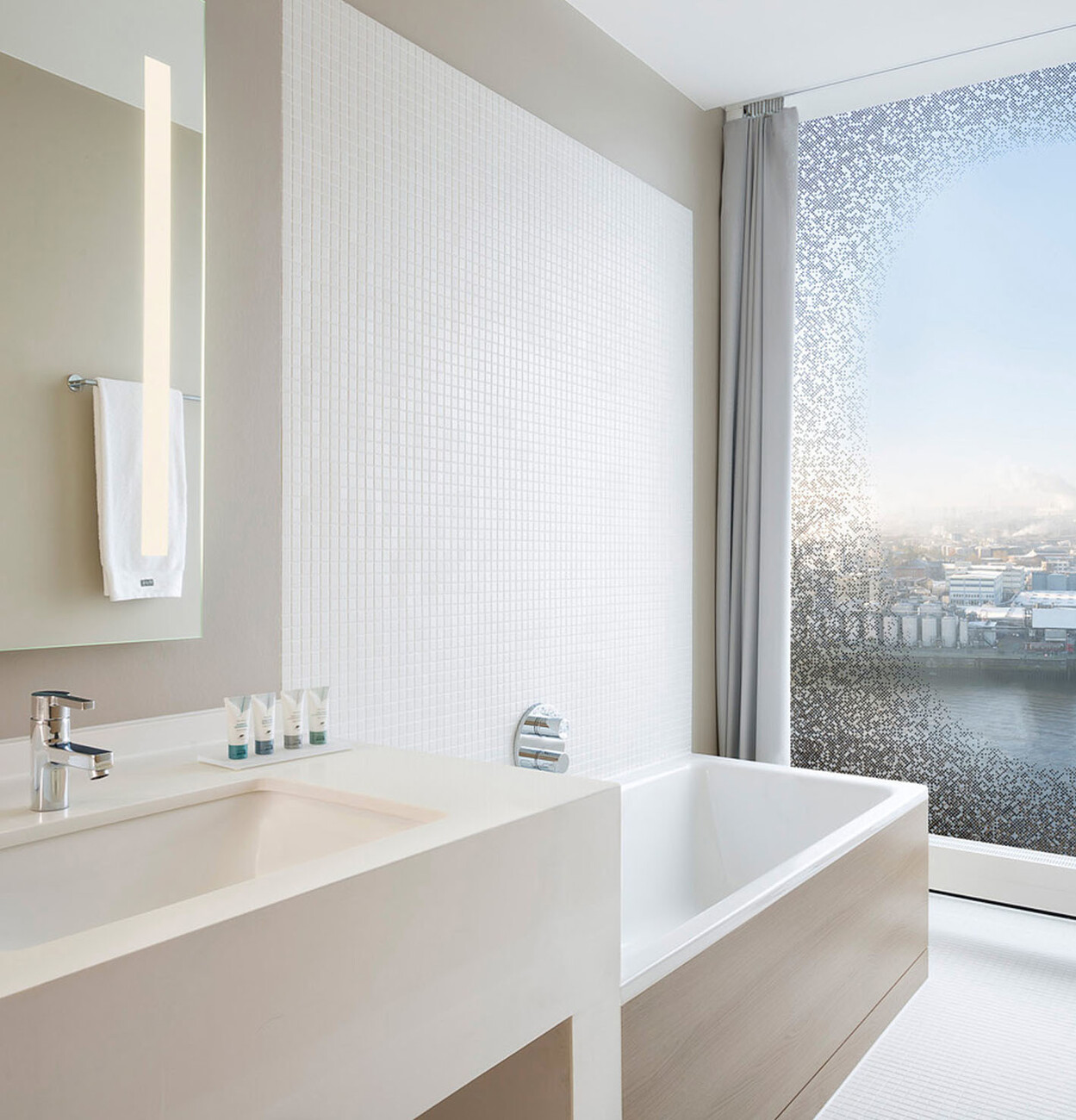STYLEPARK VILLEROY & BOCH
Spaces for individuals
A “home away from home” – that’s what the hotels of tomorrow should be, as well as flexible, individual, sustainable and fully connected. The new publication from Villeroy & Boch entitled “The Hotel of the Future” is available a free download, outlining current trends, highlighting facts, and describing key developments with studies as a basis. The book foresees a number of new challenges for architects and planners in the coming years. Since people are increasingly location-independent in the way they live and work, there is a growing need for flexible spatial solutions in hospitality. From the workspace to the entertainment center to the refuge with green oases, living environments should be equally usable for both young and old.
In another finding, the e-book by Villeroy & Boch argues that in order to be able to offer the ideal atmosphere for each and every guest, in future hotels will become ever smarter, with networked rooms regulating temperature, light and entertainment in accordance with predetermined scenarios. At the same time, sensors will monitor guests’ wellbeing so that the settings automatically adjust for the health and comfort of the individual. Faucets, washbasins and toilets that can be individually tailored to body size and mobility mark the end of standardized bathroom fittings. What’s more, hotels should also set a precedent in terms of sustainability – with designs that make use of construction materials like weather-sensitive wood and solar-active concrete walls to get the best out of any weather situation; with their own supplies of foodstuffs, which are cultivated on the façades or in the hotel’s own garden; and with sparing use of resources, from waste through to the zero-emissions bathroom in which reusing water is the norm and the daily mountain of used towels is avoided thanks to full-body dryers. The predictions in the e-book “The Hotel of the Future” by Villeroy & Boch are rounded out by expert opinions and statistics: The simple fact that a hotel consumes between 400 and 1,000 liters of water each day for every guest is justification enough for efforts towards the sustainable use of resources.
Remaining flexible is also an important principle for architects and planners working in hotel construction – and this also applies to the buildings themselves. Modular rooms, balconies and entire floors should, in future, be extendible and retractable, while staircases should be designed to be flexibly transformed into ramps and variable furniture will make it possible to use the space in different ways. By way of inspiration, Villeroy & Boch also shows examples of pioneering and extraordinary hotel concepts, such as the Hotel Schani in Vienna, the first real “FutureHotel” from the joint project of the same name with the Fraunhofer Institute for Labor Economy and Organization. Here, at the hotel bar, guests can already pay using bitcoins, and if individual water consumption becomes excessive, a light in the bathrooms switches from green to red.








